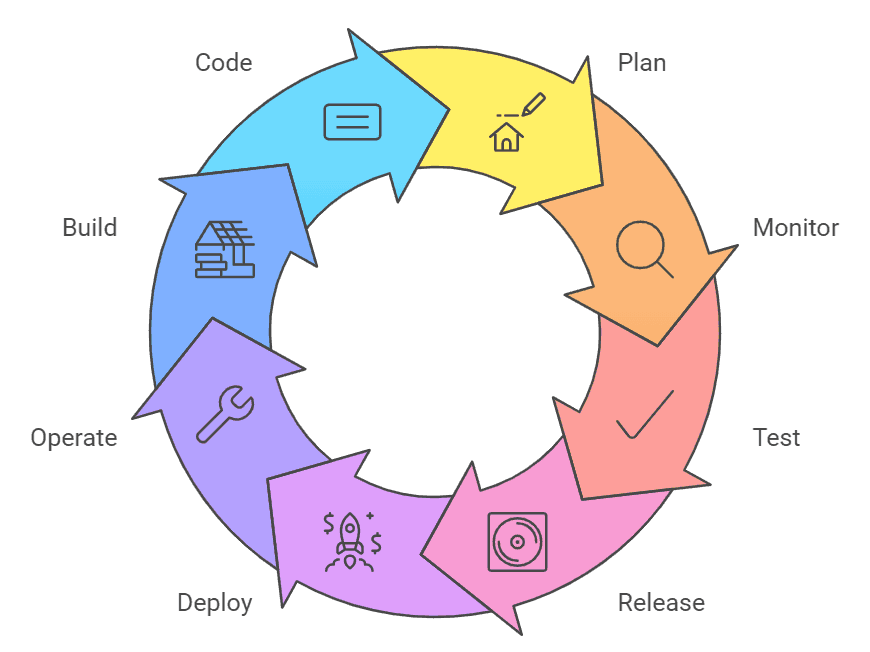In this era of significant development, Bespoke software development solutions are taking a great leap towards swiftness, automation and mainly customization. Businesses these days are constantly in search of customized solutions that cater to their specific business needs.
This tailored approach contributes to the rapid growth of the custom software development market, which is expected to soar to an impressive $120 billion by 2026, as reported by Equiteq, with a compound annual growth rate (CAGR) of 8.5%.
As per my search, While total IT spending is estimated to increase at a huge rate (6.2%, reaching $6.2 trillion by 2026), a growing number of businesses are opting for customized solutions instead of off-the-shelf options.
But why is this so?
Because custom software offers a considerable competitive edge. It integrates flawlessly with the existing business systems, automates tasks, provides valuable data insights, and is finely tuned to as per the customer base of a respective business for which it is built for. This improves the ability to stand out from competitors.

Table of Contents
What is Bespoke Software Development?
Bespoke software development refers to the process of creating custom software solutions tailored specifically to meet the unique needs and requirements of a particular organization or user. A bespoke software is built from the ground up to align with the client’s workflows, goals, and branding. According to Forbes, businesses need customized applications in the post-pandemic era. The absence of tailored apps ranks among the top three challenges that companies encounter.
One significant advantage of bespoke software development is its ability to adapt to the evolving needs of the business. For example, as organizations expand or pivot in response to market changes, their software are easily modified to incorporate new features or functionalities without the constraints typically associated with off-the-shelf solutions. This adaptability ultimately leads to improved operational efficiency and user satisfaction.
Advantages of developing a Bespoke Software
By creating software that aligns perfectly with organizational processes, companies are able to enhance efficiency, boost productivity, and gain a competitive edge. This approach allows for flexibility and scalability, ensuring long-term adaptability in a changing market.
a) Tailored to your needs
A custom software is designed to meet specific business requirements, making sure that it aligns perfectly with the needs. This means that businesses won’t have to compromise or seek additional solutions to get your work done, as it will include all the needed features you require. The Bespoke software Development process is specifically crafted to fit the unique needs and demands of your business, making it the optimal choice to effectively achieve all your organizational goals. When time and resources are invested wisely, it fosters the growth and success of your business.
b) Return on Investment
Custom software usually requires substantial investment upfront but businesses expect to see a return on this investment quickly. A well-designed and constructed system guarantees immediate savings in time and labour. Furthermore, by implementing more effective systems, businesses gain a competitive advantage, leading to increased business opportunities. When developed with meticulous attention as per the company’s needs, bespoke software enhances operational efficiency.
c) Time-Saving Capabilities
Initially custom software requires a longer development and setup time but taking in context the future race of competition, it ultimately saves time in the long run. It is designed to enhance or replicate the current workflows of business, which reduces the training required for staff to adapt to the system, making them more effective. Also, the system’s advanced technology and superior performance ensure that it meets the day-to-day operational needs.
d) Greater Flexibility
Bespoke software development offers a major control to the businesses over the product and its future management. A business is able to retain the source code, which allows for modifications and updates whenever necessary.

Four common methods used in bespoke software development
Bespoke software development involves creating tailored solutions that meet specific business needs. To ensure successful outcomes, various methods are employed throughout the development process. Each method offers unique advantages and approaches, allowing teams to adapt to changing requirements and optimize efficiency. Here are four common methods used in bespoke software development.
a) Agile Development
Agile Development is an iterative and incremental approach for Bespoke Software Development that emphasizes close collaboration, customer feedback and adaptability at every stage of the development process. Agile methodologies, such as Scrum or Kanban, support flexible, fast-paced cycles that allow for continuous improvements and quick responses to changing requirements. In custom software development, Agile promotes active communication with stakeholders, regular check-ins, and the ability to reprioritize features based on real-time insights, ensuring that the final product aligns closely with the client’s evolving needs. Agile Methodology basically focus on iterative progress makes it especially suited to complex projects where requirements may shift over time.
b) Rapid Application Development (RAP)
Rapid Application Development (RAD) is a method focused on building software quickly by using prototypes and ongoing feedback. During bespoke software development, with RAD, developers create a basic model of the software early, allowing users to test and provide feedback throughout the process. This approach makes it easier to adjust the software as needs change, leading to a final product that closely matches user requirements. RAD is especially helpful for custom software projects since it reduces development time, lowers risks, and ensures the software aligns with what users actually need.
c) Lean Software Development
Lean software development is inspired by Lean manufacturing, focusing on reducing waste and increasing value. In custom software development, this approach emphasizes delivering only what’s needed, keeping features simple, and avoiding unnecessary work. It encourages small, quick development cycles to stay flexible and respond easily to customer feedback. By improving processes continuously, Lean development helps create high-quality software that meets core needs without extra complexity, making it efficient and cost-effective.
d) Feature-Driven Development (FDD)
Feature-Driven Development (FDD) is a model-driven, iterative approach that focuses on building specific features in short, manageable cycles. This method works well for larger projects, where keeping a clear structure is a must need. FDD starts by creating an overall project model, which is then broken down into prioritized features, each representing a function that adds value for the client. By focusing on one feature at a time, FDD allows for regular updates to stakeholders, keeping them aligned with progress and allowing for quick adjustments if needed. This approach helps teams maintain steady progress and is ideal for complex projects requiring an organized development path.

How does Himcos help?
We help Owner-led businesses having no in-house tech teams build better software. We create bespoke software development solutions that are designed just for you! Our portfolio of successful projects speaks for itself. We’ve helped businesses large and small streamline their processes and achieve their goals through custom software development. We specialize in modern technologies like Node.js, React.js, TypeScript, Vue.js, MongoDB, and some more to build powerful, scalable, and efficient software. From initial consultation to ongoing support, Himcos with you every step of the way, ensuring you get maximum value from your investment.
Explore Our Success Stories here!
In today’s ever-changing environment, consumers expect seamless digital experiences. We’ve helped over 100+ businesses navigate these challenges with innovative solutions. Let’s future-proof your company and unlock new growth opportunities.



